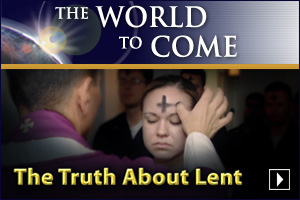Based on a quick reading and misinterpretation of Acts 20:20, many believe that the apostle Paul preached the gospel of the kingdom from house to house, to those who were unconverted. But when the entire paragraph is read, starting in verse 17, the proper meaning can be understood.
Paul “sent to Ephesus, and called the elders of the Church,” saying to them, “I…have taught you publicly, and from house to house.” He taught the Church leaders in their own homes. Paul did not go from house to house, teaching whomever answered his knock at the door.
At his own hired house in Rome, Paul “received all that came in unto him, preaching the kingdom of God,” which Christ had commanded him to preach (Acts 28:30-31). Christ had personally taught the gospel to Paul (I Cor. 15:8; Gal. 1:11-2:2). One of Christ’s teachings was that we are not to force our beliefs on anyone (Matt. 7:6). This makes clear that Paul did not try to convert people by preaching from house to house. His public teachings were carried out mainly in the Jewish synagogues.
Acts 2:46 is another widely misunderstood verse: “And they [the twelve apostles and other disciples], continuing daily with one accord in the temple, and breaking bread from house to house, did eat their meat with gladness.” It is important to note that these individuals were unified. They continued daily with “one accord.” They all believed the same things. This scripture is describing people who ate together, just as someone might invite friends and close acquaintances to his home for a meal and fellowship. These verses make no mention of Church members going out of their way to preach the gospel to strangers.
In this particular circumstance, many from different nations had gathered at Jerusalem to keep Pentecost, one of God’s annual feasts. Since they had traveled a great distance and had no home in Jerusalem, the Jerusalem brethren invited them to their homes to eat. (The King James Version of the Bible uses the term “breaking bread” to signify eating a meal.) Converted Christians were eating in the homes of other converted Christians—they were not preaching in the homes of unconverted individuals or families.
In Luke 10:5-7, we find direct instruction from Christ not to preach from house to house: “And into whatsoever house you enter, first say, Peace be to this house. And if the son of peace be there, your peace shall rest upon it: if not, it shall turn to you again. And in the same house remain, eating and drinking such things as they give: for the laborer is worthy of his hire. Go not from house to house.” Christians should never be out trying to force anyone to accept the truth of the Bible. Christ showed that God’s Word is too valuable and precious for us to flaunt carelessly (Matt. 7:6). We are instructed to “let your light so shine before men” (Matt. 5:16). A light does not make noise. Therefore, Christians are to teach by their examples.
Conversely, we might ask, “Should we invite into our homes ministers or others who are going from house to house teaching doctrines contrary to the Bible?” God’s instruction on this matter is found in II John, verses 10-11: “If there come any unto you, and bring not this doctrine, receive him not into your house, neither bid him God speed: For he that bids him God speed is partaker of his evil deeds.”
Christ’s example, and that of the apostles, is that Christians neither preach from house to house nor invite into their homes anyone approaching them soliciting a false gospel or any other man-made religion.


















